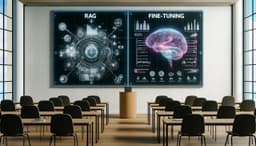Exploring the Role of an Agent in Generative AI
Generative AI is a significant focus in technology today. Its advancements are redefining creativity and automation in various fields, including design, media, and autonomous vehicles. Central to these generative systems are entities known as "agents." In the context of AI, agents play a unique and important role.
What is an agent in generative AI? Think of it like a director of a play. Just as a director interprets a script and guides the actors to produce a cohesive performance, an AI agent interprets data to generate new content or make decisions based on learned patterns. These agents can learn, adapt, and often produce surprising results.
How does the training process work? When teaching someone to draw, you provide examples and guidance. Similarly, training an AI agent involves feeding it a dataset of examples to learn from. This dataset can include images, music, text, or other forms of information. The agent identifies patterns and structures within this data. After training, it generates new instances that reflect the originals while being unique.
These agents do more than replicate. They innovate. They use their training to blend and remix learned elements, producing novel outputs that can appear remarkably creative. Generative agents are increasingly valuable tools for tasks that require creativity and problem-solving.
Who benefits from these generative agents? Artists and musicians use AI as a collaborator in their creative processes. In business, companies leverage these agents for modeling financial scenarios, predicting market trends, and optimizing logistics. In healthcare, AI agents assist in drug design and treatment personalization. They also power recommendation systems in many online platforms, such as those used by streaming services.
For instance, Netflix uses a generative AI application in its recommendation engine. This agent learns from your viewing habits to suggest new content that matches your preferences.
What are the challenges posed by generative AI agents? The rise of these technologies brings ethical concerns such as deepfakes and job displacement. Developers are actively working to integrate ethical guidelines to ensure these tools are used responsibly.
Generative AI is advancing rapidly, mainly due to the agents at its core. They are more than technological achievements; they act as digital creators and predictors. As they learn from us, we also learn about the potential of AI and creativity mixed with technology.
As agents evolve, their capabilities might exceed current expectations. They may become collaborators in human tasks or autonomous creators. The combination of artificial intelligence and human creativity holds vast potential for future innovation. AI agents are not merely simplistic entities; they are the catalyst for a new wave of generative creativity.
Looking ahead, the role of the agent in generative AI remains crucial. These agents can transform media consumption and contribute to finding solutions for complex problems. Each interaction with AI-generated content highlights the invisible agents working behind the scenes to produce remarkable outcomes.












